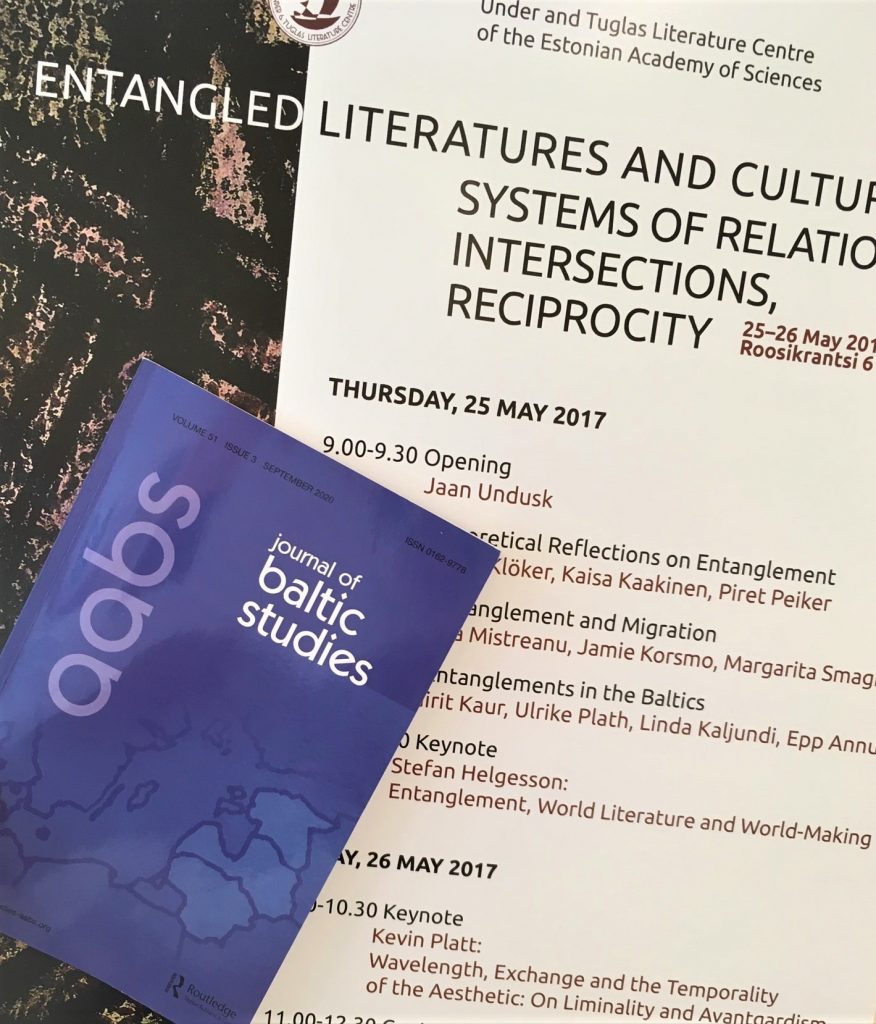Publication of a special issue of Journal of Baltic Studies on entangled cultures

The special issue offers the first attempt to look at the history and culture of the Baltic region using the concept of entangled histories and cultures. The study of entanglements is part of the transnational turn in the humanities and social sciences and has been greatly influenced by postcolonial studies, but it has its own set of topics, problems and questions that it aims to study. Rather than a methodology, the entangled approach is a perspective that looks at its research objects from a new angle and from multiple new levels of analysis. Nonetheless, it has found considerable methodological reflection in different disciplines such as history writing, literary and cultural studies, and memory studies. This introduction goes briefly over some of the disciplinary contexts where the study of entanglements has emerged and their methodological discussions. It also offers some reflections on the nodes of problems related to the interconnectedness of different cultures in the Baltic region that might be successfully approached with the concept of entangled cultures.
In 2017, the Under and Tuglas Literature Centre of the Estonian Academy of Sciences organized an international conference Entangled Literatures and Cultures: Systems of Relations, Intersections, Reciprocity. The special issue continues discussing the topics of the conference and has been published in cooperation with the Under and Tuglas Literature Centre in the framework of its institutional research project Entangled Literatures: Discursive History of Literary Culture in Estonia (IUT 28-1, project leader Jaan Undusk). The compiler and editor of the special issue is Eneken Laanes.
Volume 51 2020
Issue 3
2020 pages 301-475
Entangled Cultures in the Baltic Region
Eneken Laanes. Introduction: entangled cultures in the Baltic region
Kristi Viiding & Thomas Hoffmann. Cultural entanglement in early modern letter-writing: David Hilchen’s correspondence with humanists from the Low Countries
Martin Klöker. The model of entanglement and change in literary history: peculiarity and performance of a pattern for pre-national literature
Linda Kaljundi & Ulrike Plath. Serfdom as entanglement: narratives of a social phenomenon in Baltic history writing
Kaisa Kaakinen. Entangled histories and divided audiences: overhearing Joseph Conrad, W. G. Sebald, and Dan Jacobson
Piret Peiker. Entangled discourses in a Bildungsroman of Soviet Estonian modernity: from an Ugly Duckling to Gagarin’s Space Princess?
Daniele Monticelli. Translating the Soviet Thaw in the Estonian context: entangled perspectives on the book series Loomingu Raamatukogu
Kevin M. F. Platt. Entangled histories in Eastern Europe: complementary occlusions and interlocking extremes in Baltic-Russian memory conflicts
Eneken Laanes. Entangled memories of human rights in Kristina Norman s video art space visual frames politics of art
Journal of Baltic Studies (JBS), the official journal of the Association for the Advancement of Baltic Studies (AABS), is a vital source of scholarship for those engaged in Baltic state and Baltic Sea region studies.
